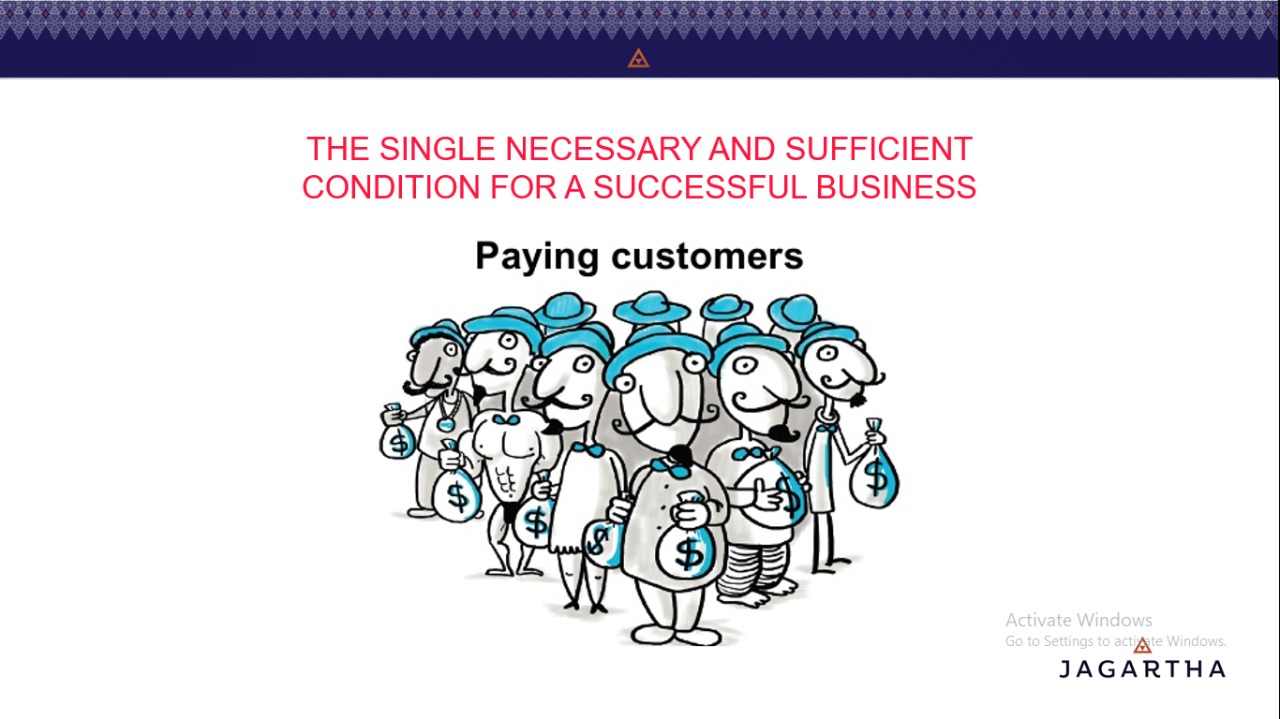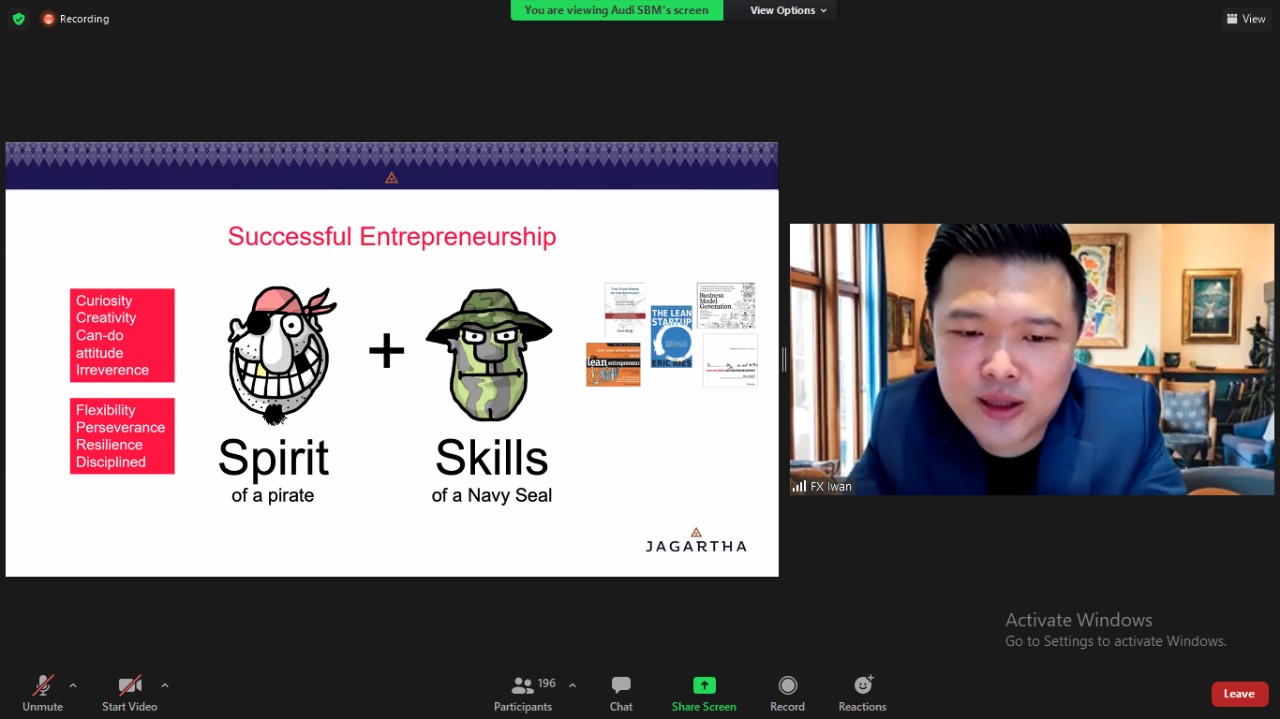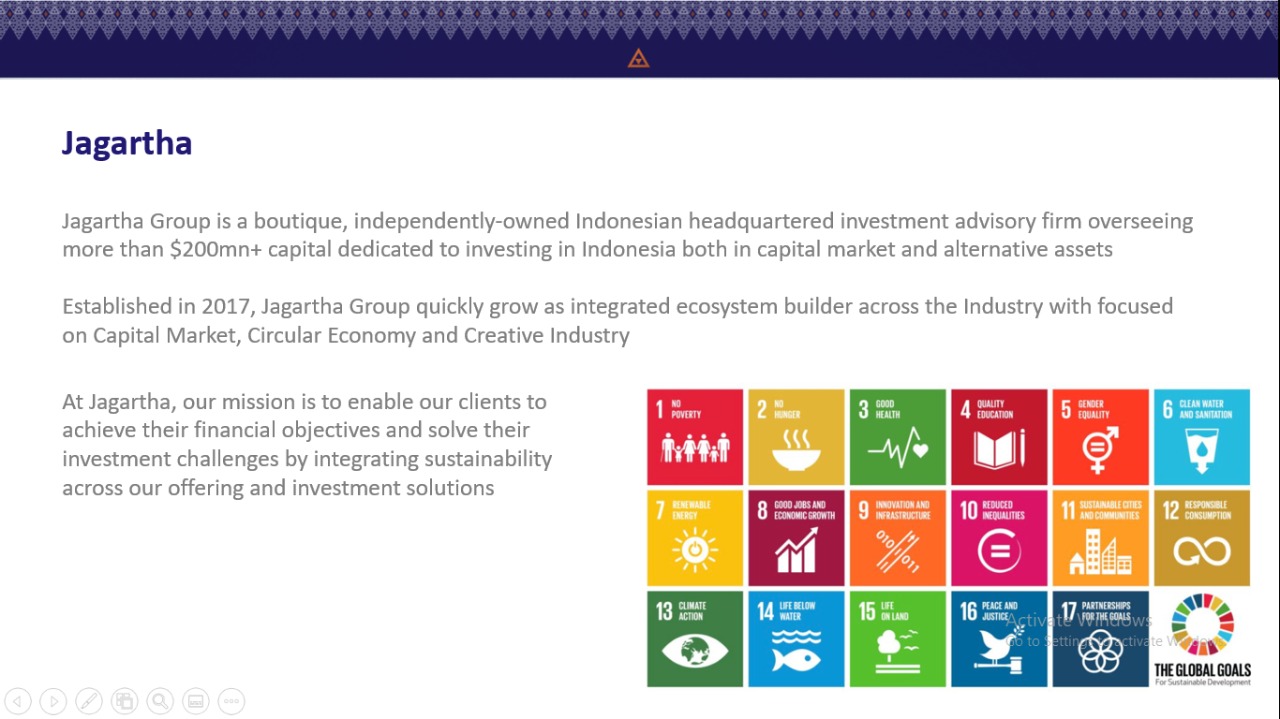In times, we can note that the competition in the business is becoming increasingly tight. Now, entrepreneurs cannot rely on the traditional ways; they must always provide an element of enhancement to answer various increasingly diverse problems in society. Not surprisingly, today’s business needs to embrace the concept of an innovation-driven enterprise (IDE) to survive and thrive.
As an educational institution that aims to create new entrepreneurs that focus on innovation, SBM ITB held a guest lecture for the Introduction to Business and Management Course, intended for students undergoing TPB (Tahap Persiapan Bersama).
 The guest lecture presented FX Iwan, the Co-Founder and CEO of the Jagartha Group. Before being the CEO of his company, Iwan was the Head of Sales and Marketing at Mandiri Investasi. His track record in business funding makes him well aware of the innovation-based business, particularly in ‘startup’ companies.
The guest lecture presented FX Iwan, the Co-Founder and CEO of the Jagartha Group. Before being the CEO of his company, Iwan was the Head of Sales and Marketing at Mandiri Investasi. His track record in business funding makes him well aware of the innovation-based business, particularly in ‘startup’ companies.
Jagartha Group is an investment advisory firm headquartered in Jakarta, Indonesia, independently owned and oversees more than $200 million of dedicated capital investment. In Indonesia, both in the capital market and alternative assets. The company was founded by FX Iwan, Mungki Ariwibowo Adil, and Markus Erik Argasetya.
According to Iwan, before discussing innovation-driven enterprises, we need to be familiar with the term. In a business context, innovation combines the new invention concept with commercialization. New inventions in products or processes that are unique and experimental are then commercialized by considering the values to be applied, timing, and pricing while also considering sustainability and profitability.
 An innovation-driven enterprise is an inherent concept and is often equated with the term startup. It distinguishes it from small, medium enterprises (SMEs). SME business concept focuses only on the local market, with a relatively short development time frame, linear growth, and requires less investment. Meanwhile, startups focus on growing to a global market rooted in product innovation, relatively long development time, exponential growth, and require a lot of investment.
An innovation-driven enterprise is an inherent concept and is often equated with the term startup. It distinguishes it from small, medium enterprises (SMEs). SME business concept focuses only on the local market, with a relatively short development time frame, linear growth, and requires less investment. Meanwhile, startups focus on growing to a global market rooted in product innovation, relatively long development time, exponential growth, and require a lot of investment.
Iwan brought the steps to form a successful innovation-driven startup. There are 24 steps divided into six major themes:
- Who is your customer? Businesses nowadays need to pay attention and focus on the customer. For this reason, startups need to segment the market and select target customers, perform TAM-SAM-SOM calculations, and build end-user profiles and personas.
- What can you do for your customer? After knowing who the customer is, the startup needs to form a value proposition to share and determine the full lifecycle of the product.
- How does your customer acquire your product? To ensure products can reach customers, startups can determine the customer decision-making unit (DMU) and map the sales process.
- How do you make money off your product? A business certainly pays attention to profit. Therefore, startups must be able to create a good business model, determine prices, and calculate the lifetime value (LTV) of the acquired customers and the cost of customer acquisition (COCA).
- How do you design and build your product? As the core of business operations, the product needs to be developed properly by determining and testing key assumptions and determining the minimum viable product (MVP).
- How do you scale your business? In addition to pursuing profits, startups also need to focus on growth by always paying attention to the total available market (TAM) and developing product plans.
 Apart from the comprehensive steps, Iwan said that one way to make a business successful is by “paying” customers. In the startup world, paying customers is often associated with the concept of “burning money,” usually done by giving massive promotions to customers to attract their attention. Although this can guarantee customer acquisition, Iwan reminded that this also needs to be accompanied by a problem-solution fit; startups need to solve society’s problems with great products. Furthermore, startups also need to know how to make profits, pay attention to sustainability, and build companies that last.
Apart from the comprehensive steps, Iwan said that one way to make a business successful is by “paying” customers. In the startup world, paying customers is often associated with the concept of “burning money,” usually done by giving massive promotions to customers to attract their attention. Although this can guarantee customer acquisition, Iwan reminded that this also needs to be accompanied by a problem-solution fit; startups need to solve society’s problems with great products. Furthermore, startups also need to know how to make profits, pay attention to sustainability, and build companies that last.




